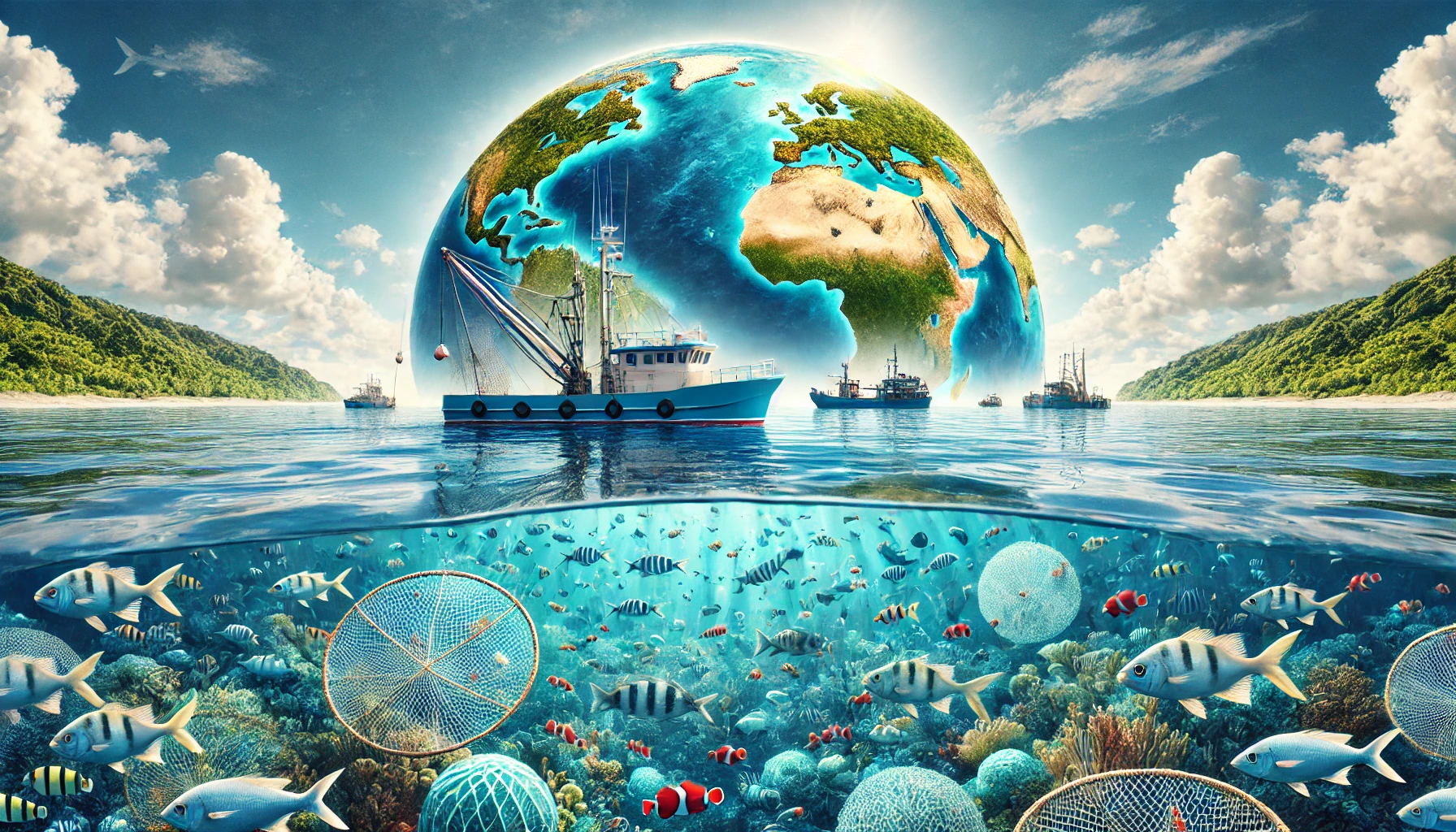World Bank Approves $32.23 Million Belize Blue Economy Project to Safeguard Marine Resources
Belize faces significant environmental and economic threats, ranking third among small island developing states most at risk from climate-related disasters.

The World Bank’s Board of Executive Directors has approved a groundbreaking $32.23 million initiative to support Belize’s blue economy, a model that promotes sustainable ocean and coastal resource management while fostering economic growth, environmental conservation, and improved livelihoods. The Belize Blue Cities and Beyond Project aims to enhance marine and coastal resource management, expand access to safe water, and curb land-based pollution in key urban areas, helping Belize combat growing environmental and economic challenges.
Belize faces significant environmental and economic threats, ranking third among small island developing states most at risk from climate-related disasters. The country’s world-renowned barrier reef, the largest in the northern hemisphere, has suffered severe degradation due to overfishing, habitat destruction, and climate change impacts, declining from a ‘fair’ to a ‘poor’ health rating. This critical ecosystem contributes over $1 billion annually through tourism, fisheries, and coastal protection, making its preservation vital for economic stability.
Additionally, rapid urbanization and inadequate infrastructure are straining coastal environments. Only 71% of Belize’s population has access to a reliable water supply, and just 18% are connected to sanitation systems. Pollution from untreated sewage, agricultural runoff, and urban waste, combined with rising sea levels, frequent hurricanes, and extreme weather patterns, further exacerbates threats to marine ecosystems and local livelihoods.
Project Goals: Strengthening Belize’s Blue Economy
The Belize Blue Cities and Beyond Project will address these challenges through strategic infrastructure investments and policy reforms focused on resilience, sustainability, and economic empowerment. Key components include:
1. Sustainable Coastal & Urban Planning
- Development of national geospatial and spatial planning systems for ecological urban planning.
- Implementation of nature-based solutions to strengthen climate resilience.
- Creation of a National Sanitation Master Plan to improve water quality and waste management.
- Policy reforms to enhance sustainable fisheries management and marine monitoring.
2. Infrastructure Development & Pollution Control
- Upgrading Belize City’s wastewater treatment plant to improve capacity and meet national environmental standards.
- Expanding water supply in South San Pedro to provide clean drinking water to underserved populations.
- Implementing a waste management pilot project to reduce waste, promote recycling, and encourage circular economy investments.
3. Carbon Market Development & Sustainable Financing
- Establishing a regulatory framework for carbon markets and digital infrastructure for carbon credit transactions.
- Developing high-quality carbon credits that can be marketed internationally, unlocking sustainable financing opportunities for climate action and marine conservation.
4. Community Engagement & Capacity Building
- Providing training for local governments, NGOs, and women- and youth-led businesses in blue economy management.
- Offering specialized climate resilience training, including gender-sensitive approaches to marine resource conservation.
- Strengthening community-based engagement programs to empower coastal communities and improve their adaptive capacity.
A Model for Sustainable Growth in the Caribbean
“This is an important initiative which could have a transformative effect,” said Lilia Burunciuc, World Bank Director for the Caribbean. “By protecting its valuable marine resources while advancing the blue economy, Belize is setting a model for resilience and economic growth—one that is especially relevant for the Caribbean and other small island states facing similar challenges.”
Funding & Partnerships for a Sustainable Future
The $32.23 million project is funded through multiple sources, including:
- $23.5 million from the World Bank’s International Development Association (IDA), which provides low-interest loans and grants to low-income nations.
- $3.76 million from the Global Environment Facility (GEF) to support marine biodiversity and conservation.
- $4 million from the PROBLUE multi-donor Trust Fund, which promotes sustainable ocean governance and climate resilience.
- $0.96 million from the Global Facility for Disaster Reduction and Recovery (GFDRR) to enhance climate adaptation measures.
Conclusion: A Pioneering Initiative for Climate Resilience and Marine Conservation
The Belize Blue Cities and Beyond Project represents a major step forward in balancing economic development with environmental sustainability. By strengthening marine protection, upgrading essential infrastructure, and introducing innovative financing solutions, the initiative positions Belize as a regional leader in the blue economy. Through strategic partnerships, innovative policies, and community engagement, the project aims to preserve Belize’s natural heritage while ensuring long-term economic resilience for its people.
- READ MORE ON:
- World Bank
- Belize










